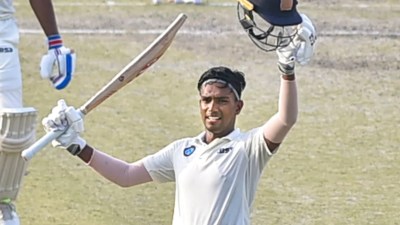Govt hold on sanction to hamper judicial powers
CBI required to approach the government for sanction under the Delhi Special Police Establishment Act.
The Supreme Court Tuesday observed that letting the Centre clutch on to its authority to decide CBIs requests for investigating senior bureaucrats even in court-monitored investigations,like the coal blocks allocation case,would be contrary to exercising judicial powers.
The court,on one hand,directs the CBI to investigate and it also monitors the investigation. And then it is hampered by an agency which,directly or indirectly,has involvement with such investigations. It hampers judicial powers, said the Bench led by Justice R M Lodha. The executive becomes the judge of its own cause if it gets to decide a part of the investigation that may relate to it. Complicity and criminality in a case can be unearthed only if investigation is taken to the logical conclusion.
The Bench reserved its order on the question if the CBI required to approach the government for sanction under the Delhi Special Police Establishment Act to probe officers of joint secretary-level and above.
The court said it monitored investigation only in exceptional cases where there was an apprehension of impediments against a fair probe and so,it failed to see why the normal procedure should hinder a court order passed in special circumstances. The AG countered the courts opinion,saying there was a law that mandated a sanction before probing top officials. The court,however,told him it will be in the interest of the central government if it concedes to a proposition that no such approval is required in court-monitored cases.
- 01
- 02
- 03
- 04
- 05































